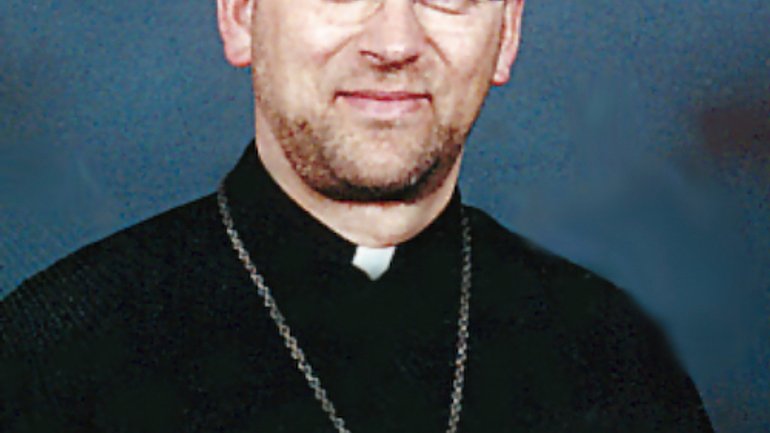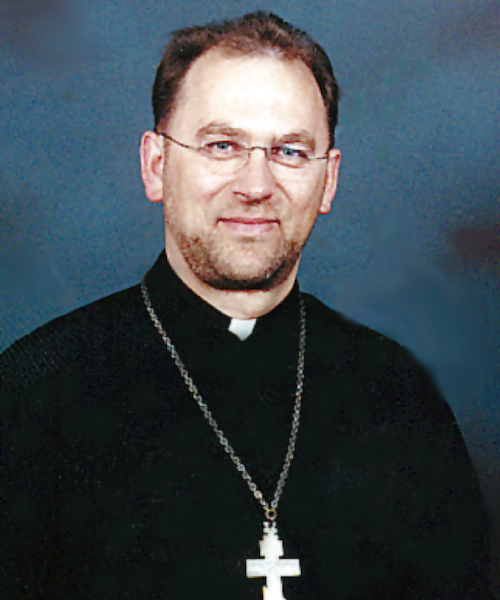The Ecclesiastical Motherhood of the Orthodox Church in Ukraine

Responding to: Orthodoxy in Ukraine: Ecumenical and Theological Perspectives
 One of the most critical questions facing contemporary Orthodox ecclesiology is the autocephaly of the Orthodox Church in Ukraine and the schism within Orthodoxy. On account of the magnitude of this theme and the general misperception and manipulation of fundamental facts of Orthodox ecclesiology, our particular attention will be paid to the main ecclesiological principles of autocephaly and the subsequential concept of the motherhood of the local church.
One of the most critical questions facing contemporary Orthodox ecclesiology is the autocephaly of the Orthodox Church in Ukraine and the schism within Orthodoxy. On account of the magnitude of this theme and the general misperception and manipulation of fundamental facts of Orthodox ecclesiology, our particular attention will be paid to the main ecclesiological principles of autocephaly and the subsequential concept of the motherhood of the local church.
Autocephaly is not a destiny or a final goal of the ecclesial independence of the local church, but a life-giving possibility that allows people to express their longing for God according to their specific conditions and expressions. At the present time, there is no acceptable formula or procedure for establishing a local autocephalous church. Although there are some characteristic features concerning the recognition of an independent local church, the mechanism of granting autocephaly needs to be agreed upon. The past doesn’t provide an incontrovertible model for autocephaly at this time, as there is no sacred canon that provides direction to the manner of establishing autocephaly.
All of the local churches that were granted autocephaly in the last two centuries based their ecclesial independence on the fact that the particular nation managed to achieve its political and territorial independence. This has to be strongly emphasized as only those autocephalies given by the Ecumenical Patriarchate are recognized and validated by the rest of the local churches in the world. All the current autocephalies, starting from the Russian Orthodox Church in 1589, proceed from the See of the Ecumenical Patriarchate. It is a very distinctive privilege and task given to the Ecumenical Patriarchate by the Seven Ecumenical Councils, especially by the Council in Trullo in 692, where it is said: “the See of Constantinople shall have equal privileges with the See of the ancient Rome, and shall be highly regarded in ecclesiological matters…” There is no other local Orthodox church in the world which can claim the same responsibility and prerogatives as the Ecumenical Patriarchate. This tremendous ecclesiological prerogative draws its privileged position from the consensus of the ecumenical council and its authenticity to the truth. Until such time as the next ecumenical council will finally resolve this issue, the task belongs exclusively to the Ecumenical See.
Mother Church: The distinctive term used by the Ecumenical Patriarchate in regard to the Orthodox Church in Ukraine, since the Christianization of Rus’ in 988, is the term: “Mother Church” from which the local church has sprung. The Mother Church is the one who accepts the declaration of the Daughter Church and the one who begins the process of recognition among the other autocephalous churches on her behalf. The declaration presents us with an ecclesial bond that is never broken by a third party—never isolated, eradicated, transferred, suppressed, or politically and territorially enslaved.
Because the local church in Ukraine was under the canonical jurisdiction of the Ecumenical Patriarchate of Constantinople until 1686 and there is no ecclesiological or canonical justification for the annexation of action done by the Moscow Patriarchate, the matters of the Orthodox Church in Ukraine are the matters of the Ecumenical Patriarchate. The Ecumenical Patriarchate never rejected or relinquished its motherhood of the Orthodox Church in Ukraine. The position by the Church of Constantinople is consequential and uncompromised, especially in the last three centuries. Because of this, the Patriarchate of Constantinople will never give away the right of the Mother Church for the Orthodox Church in Ukraine as this is not only a right of privilege, but it is also the internal component of the historical ecclesial authenticity. As a consequence, on January 6, 2019, the Mother Church of Constantinople declared the Daughter Church of Ukraine to be holy, catholic, apostolic, and autocephalous.
The current difficulties with the Orthodox Church in Ukraine and schism within world Orthodoxy in general have a canonical or ecclesial character and as such, they could be characterized as canonical abnormalities. Those components are not of doctrinal character that could tear the Orthodox Church apart intrinsically. The schism within the Orthodox Church in the world has a geopolitically oriented directive caused mainly by the Moscow Patriarchate. The characterization of the present rift within the Orthodox Church as the greatest Christian schism since the East-West division of 1054, as portrayed by the Moscow Patriarchate, is a gross violation of the definition of the Body of Christ. This apocalyptic posture of the Moscow Patriarchate characterizes Russian theological thought as locked to the defense of xenophobic isolationism and religious fundamentalism. As a consequence, the schism within Orthodoxy caused by the Moscow Patriarchate is only one sided and temporary. While the East-West division in 1054 was caused by doctrinal differences, the present rift follows the geopolitical coordinates of the Kremlin and personal ambitions of the ecclesiastical authorities. As a result, the Catholic-Orthodox dialogue will continue, as the unity of the Body of Christ always overrides political ambitions or human ideology.
Autocephaly of the Orthodox Church in Ukraine brings a source of pride and dignity for Ukrainians who were deprived of this essential anthropological element during the last three centuries. From another perspective, challenges facing the Orthodox Church in Ukraine are in large part multidimensional social and geopolitical realities. Without overlooking all of the ecclesiological, geopolitical, and historical events, the Orthodox Church in Ukraine stands again as an equal with the other recognized autocephalous churches in the world. Despite centuries of Russification, forced integration into the Moscow Empire, constant persecution and deportation, subjugation to Tsarist Russia, and ethnic cleansing, the nation of Ukraine, with its unique calling, stands again to pray to God in its authentic, independent, and ecclesial identity.
- Good Fences Make Good Neighbors: Autocephaly, Legitimacy, and Unity in Ukrainian Church Life
By: Nadieszda Kizenko - Orthodox Debates after the Creation of the Orthodox Church in Ukraine: A Necessary Catharsis
By: Nicholas Denysenko - Panorthodox Challenges and Opportunities Coming from the Ukrainian Autocephaly
By: Cyril Hovorun - The Autocephaly of the Orthodox Church of Ukraine: Ecumenical Perspectives
By: Pavlo Smytsnyuk - The Ecclesiastical Motherhood of the Orthodox Church in Ukraine
By: Jaroslaw Buciora









